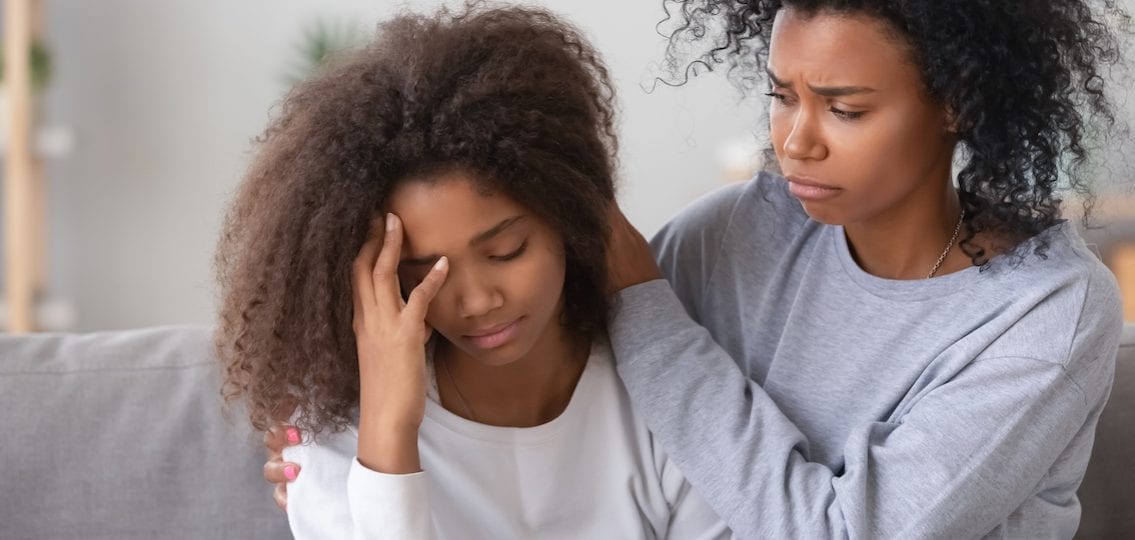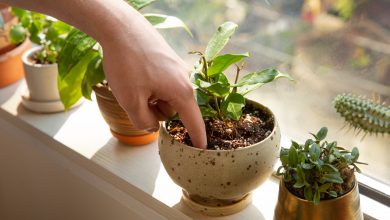How To Deal With Anxiety(2023)

How To Deal With Anxiety: Have you ever questioned your ability? Are you content? Do you feel at ease with your life, or is it filled with stress and worry? Are you happy with your life’s accomplishments, or do you find disappointment and failure to be a source of frustration? Do you want to enhance your physical, mental, and emotional health and well-being? Enough Info

Anxiety is a problem that might affect your life on a regular basis or only infrequently. It’s normal to experience stress before a significant occasion or at a busy time. However, if you find that you frequently experience anxiety and are unable to overcome it, a closer look at this might be helpful. It’s crucial to discuss your experiences with a therapist, psychologist, or psychiatrist if you’re worried about your anxiety.
The purpose of this essay is to arm you with the knowledge and strategies you need to transform your life from the inside out. You’ll discover how to appreciate and adore yourself just as you are right now. You’ll discover how to stop talking negatively to yourself. You’ll discover how to rewire your subconscious mind to get rid of self-defeating thoughts and self-destructive behaviors. You’ll discover how to let go of the past so that you can live an amazing future. How To Stop Snoring(Steps and requirements)
What exactly are anxiety disorders?
Moving to a new location, beginning a new job, or taking an exam can all cause anxiety. Although this kind of anxiousness is unpleasant, it could spur you on to work harder and do better. Ordinary anxiety is a passing emotion that has little impact on day-to-day activities.
Fear may be present all the time if you have an anxiety disorder. It can be quite painful and incapacitating.
You could stop doing the activities you like to do because of this form of anxiety. You might be prevented from using an elevator, crossing the street, or in severe circumstances, even leaving your house. The anxiousness will only get worse if not treated. The most prevalent type of emotional disorder is an anxiety disorder, which can affect everyone. How to Become a Professional Footballer (9 Simple Steps)
Types of anxiety disorders?
Anxiety has a significant role in many different conditions. These consist of:
- Panic disorder: This means that you frequently have panic episodes at odd times.
- Phobia: An extreme fear of a certain thing, circumstance, or behavior
- Disordered social anxiety: This is a severe dread of people judging you in social settings.
- Disorder of compulsive obsession: This means that you frequently have irrational thoughts that cause you to engage in particular, repetitive actions.
- Disorder of separation anxiety: This indicates that you are afraid of being alone or separated from your loved ones.How to get rid of Sore Throat Quickly
- Anxiety disorder illness: This is worry about your well-being (formerly called hypochondria).
What signs of anxiousness are there?
The experience of anxiety varies from person to person. From stomach aches to a racing heart, emotions can range. There may be a feeling of disconnection between your mind and body that makes you feel out of control.
You can feel anxious and fearful all the time, or maybe you’re afraid of a certain place or thing. You might occasionally have a panic attack.
Anxiety symptoms might include:
- Difficulty to manage worried thoughts or ideas
- Restlessness
- Unaccounted-for aches and discomfort
- Difficulty concentrating
- Having trouble getting to sleep
- Fatigue
- Irritability
Read Also: How to Get Rid of Body Odor(2023)
How to deal with anxiety
Practice deep breathing
Your stress level will immediately drop if you take long, deep breaths. The majority of people breathe through their chests shallowly, inhaling quickly, and expelling quickly. We frequently breathe faster when we’re under stress, which makes us feel even more anxious. Instead, concentrate on breathing deeply from your abdomen or diaphragm. Your stomach ought to swell. How To Build Muscle (Steps and Requirements)
- In addition to helping you lower your blood pressure, relax your muscles, and calm down, breathing deeply and slowly will allow you to take in more air than simply breathing through your lungs would.
Choose a hobby you enjoy
When you don’t have an opportunity to decompress from life’s issues, anxiety frequently grows. Spend at least ten minutes each day engaging in an activity that makes you happy. This could be writing, listening to music, doing sports, or creating art. Providing a release for your anxiety will assist in both short-term and long-term mental relief. How to Get Rid of Yellow Teeth (10 Best Methods)
- If you have some spare time, consider enrolling in a new class in a subject that interests you. Look into a local ring-making class if you adore jewelry. Start taking lessons from a local teacher or sign up for a language program at a nearby community college if you’ve always wanted to learn a new language.
- Make a determination not to worry about your concerns when you are engaging in your favorite activities. You’ll be able to appreciate your activity much better and stop further ruminations if you remove them from your mind.
- Take any action that will allow you to unwind in a healthy way. Everyone is different, therefore there isn’t a single best technique to reduce stress.
Avoid overextending yourself
You’re probably frequently exhausting yourself and producing more tension than is required if you have a hectic schedule, bring work from the office home with you, and worry about mastering your school papers. Keep a timetable of your essential activities, then temporarily stop doing everything else. Long-term relief from anxiety will come from allowing yourself alone time to deal with it.
- Recognize when to refuse certain demands. It’s acceptable to decline invitations occasionally, whether it’s due to a new work obligation or an overwhelming amount of errands.
- Regularly hanging out with friends is usually wonderful, but doing it too frequently can make you worry that you’ll let them down or run out of time for yourself. Friendship dates should be spaced apart, leaving enough time for you in between.
Read Also: How To Build Self-Esteem
Get plenty of sleep
Anyone who lacks sleep can feel drowsy and exhausted, but anxiety sufferers are particularly affected. Your nervous, worrisome thoughts may worsen if you don’t get enough sleep. Ensure that you are sleeping for 7-9 hours every night.
Try waking up and going to bed at the same time each day. You’ll sleep better at night as a result of this helping to balance your sleep cycle.
- Use melatonin supplements if you’re having trouble sleeping or staying asleep. Your body produces the hormone melatonin to aid in sleep. Most health food stores sell low-dose melatonin pills.
Mediate regularly
Particularly for those who suffer from a generalized anxiety disorder, relaxation and meditation practices are particularly beneficial in reducing anxiety (GAD). There are many various meditation techniques, so it’s advisable to try a few before settling on the one that makes you feel the most at ease and relaxed. If you want to lessen your overall anxiety, you can meditate every day or when you start to sense an anxiety attack coming on.
- For novices, guided meditation is an excellent alternative. Although a guided meditation can be done in person, it can be simpler to start by purchasing a meditation CD or watching a meditation video on YouTube. When your heart starts to race or you feel like you don’t have control over your thoughts, you’ll learn ways for calming down.
Consider visualizing
By doing this, you can purge your mind of uncomfortable ideas and visuals and replace them with calming ones. To visualize a setting where you feel secure and at ease, try using guided imagery. To fully transport your thoughts to the image in your imagination, concentrate on the details as you see them.
- You may calm your body and mind and get ready to deal with whatever is causing your anxiety by shifting your focus from negative to positive thoughts and images.
Unwind at home with loved ones
You should be completely anxiety-free at home. Your sanctuary should be your house and the people you love. Take some time to unwind at home if you are experiencing a lot of tension. Make sure you allow enough of time for enjoyable, stress-free interactions with your loved ones.
- Call a buddy or invite someone over if there is no one else at home. The company of those you love can be reassuring.
- Tell a friend or member of your family how you’re feeling. Say something along the lines of, “My ability to feel cheerful has been hindered lately by my extreme anxiety. Do you ever experience this?
Try these anxiety-relieving exercises
Studies have demonstrated that regular exercise helps alleviate anxiety disorders as well as the symptoms of everyday worry. It enhances emotions of well-being both during and for hours following exercise. Exercises that increase the heart rate, like jogging or biking, as well as those that build muscle, like weightlifting, all help to lower anxiety.How To Quit Smoking(Steps and Requirements)
- Think about trying yoga. Yoga is a particularly effective exercise for reducing anxiety because of the tranquil environment of the studios and the opportunity to be still and inwardly focused for around an hour.
- Try introducing low-impact physical activity into your routines if the mere concept of working out makes you nervous. You don’t need to join a gym or participate in a team sport to get enough exercise; simply taking a daily stroll in your neighborhood can do wonders for your disposition.
Eliminate from your diet any items that make you anxious
Although it may seem straightforward, altering what you consume on a regular basis can significantly lower your anxiety. Plan to follow at least one of these dietary adjustments if you discover that you experience anxiety, panic, or stress every day. Consider your usage of the following typical anxiety-inducing substances:
Read Also: How To Take Care Of Your Eyes
Coffee. One of the main contributors of anxiety may also be the most well-known “energy drink” of all time. For a few weeks, try drinking only water or decaffeinated tea instead of coffee if you normally consume coffee in the morning. Even though giving up could be difficult, you probably won’t experience as much tension during this time.
Alcohol. Many people unwind with a few drinks after a demanding day at work. In the time, alcohol makes worry seem far away, but the aftereffect negates the transient feeling of ease. Drink in moderation, and when you do, be careful to water to lessen the likelihood of experiencing an extremely severe hangover.
According to functional medicine, inflammation of the central nervous system is what causes anxiety. Changing your diet may help you feel less anxious because the gut is where this inflammation originates.
Glucose and starch. Since comfort foods can make people feel peaceful, it’s common for people to view eating sweet and fatty sweets (such ice cream, cookies, or spaghetti) as a way to reduce stress. The spike and decrease in blood sugar that follows consuming these meals, however, can actually lead to emotional stress and pressure.
Add meals that will make you feel better to your diet
Maintaining good health and a balanced diet can significantly help to stabilize your mood. Your body will be better prepared to fight off anxiety during stressful conditions if you’re obtaining the correct nutrition. Try substituting fruits and vegetables for coffee, alcohol, and sweets to minimize their detrimental impacts on mental health. How to have a good singing voice (Top 14 Tips)
- Eat more antioxidant-rich foods like blueberries and acai berries. These assist in improving mood and reducing stress-inducing chemicals.
- Try eating things like eggs, almonds, and salmon which are rich in vitamins D, B, and E.
- Omega-3-rich foods like walnuts and flax seeds may also be beneficial.
- Consume meals high in magnesium-containing minerals including whole grains (pasta and bread), maca root, and seaweed. Magnesium deficiency, which affects the majority of individuals, can cause a number of symptoms, including anxiety.
Also Read: How to Get Rid of Body Odor(2023)

Medical Treatment for Anxiety
Talk to a therapist.
You should be aware of when to consult a doctor. Make an appointment with a psychologist or psychiatrist if you have persistent anxiety and believe you might have an anxiety condition. A mental health disorder like generalized anxiety disorder might have anxiety as a symptom (GAD).
Agoraphobia, separation anxiety, social anxiety, and even obsessive-compulsive disorder can result from anxiety disorders, as can crippling worry and panic attacks. Without a doctor’s assistance, it can be extremely difficult to treat mental health anxiety issues, so the sooner you get care, the faster you’ll recover.
- Even while the word “diagnosis” can be frightening, knowing that you have a mental health issue, like anxiety disorder, will assist your therapist or psychiatrist know how to treat your particular instance of anxiety.
- It’s crucial that you have confidence in your therapist and feel at ease and at ease when conversing with them. You should verify with your health insurance company before choosing a therapist to determine if therapy, a psychiatrist, and pharmaceutical costs are covered by your policy.
Tell your doctor about your anxiety
When explaining your anxiety symptoms to a therapist or psychiatrist, be as explicit as you can. They are there to support you and are likely already familiar with a variety of anxiety and mental health issues. Be sure to identify any particular triggers that cause your anxiety if you have any. Therapy for anxiety disorders works well, but only if your therapist has the knowledge necessary to assist you. Invoke the following phrase:
- I’m fine most of the time, but if I have to be around a lot of people, my breathing and pulse rate quicken, and I start to feel quite worried.
- “I find it difficult to get through the day because I have so many worried thoughts running through my head. How to remove paint from clothes (2023 Review)
Take into account anxiety drugs
Ask your psychiatrist about anxiety-reducing medicine if your anxiety lasts for a long time and interferes with your ability to sleep or function normally during the day. Before taking anti-anxiety pills, consider approaches like counseling, exercise, and mental tactics because many anti-anxiety medications can have detrimental side effects or be habit-forming.
- With the right prescription medication, you can effectively cure symptoms including panic attacks, severe social anxiety, and others.
Read Also: How To Stop Snoring(Steps and requirements)
Conclusion
Medication, psychotherapy, or a combination of the two are all options for treating anxiety. However, some people choose to live with moderate anxiety disorders or phobias of things they can easily avoid rather than seeking treatment.
However, avoiding the trigger may actually worsen anxiety over time. Your urge to avoid a trigger can be reduced with treatment. It’s critical to realize that even the most severe cases of anxiety disorders are treatable. You may learn to control your anxiety and lead a happy, healthy life even if it typically doesn’t go away.
FAQs & Answers
What actions can I do to lessen my anxiety?
A major one is maintaining a healthy lifestyle. You’re more likely to feel well emotionally if you’re feeling good physically. Another excellent method for putting your mind in a healthy place is meditation. But you might want to think about going to therapy if your anxiety becomes so severe that it makes it difficult for you to function in daily life.
What can I say to calm my nerves?
Depending on the person, using words may not be very effective. Returning to your body and surroundings is crucial for overcoming anxiety. Try to unwind your body and concentrate on the ground or the chair you’re sitting or standing in. Put your eyes closed and let yourself blend into the ground or a chair. Then concentrate on your body and breathe more slowly. Your nerves will most likely calm down as a result.
How does anxiousness feel?
being tight, worried, or unable to unwind. feeling dreadful or anticipating the worst feeling as if time is moving more slowly or more quickly. having the impression that others are staring at you and can see how nervous you are.




